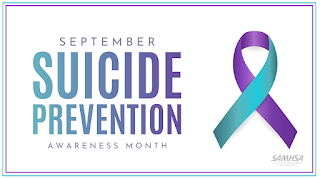Our Responsibility to Students Amid DACA Removal
What is DACA?
DACA is an
acronym used for the Deferred Action for Childhood Arrivals. This law was enacted
in 2012 under the Obama Administration. This act protects eligible immigrant
youth who came to the United States as children from deportation for two years and and allows them access to a work permit. Applicants to
the DACA program pay a fee and must renew their application after two years.
The Current State of DACA
On
September 5th, the current administration announced a phase-out of
the program. All initial applications sent after September 5th will
not be accepted. The Department of Homeland Security is allowing a six-month
window in which it will consider renewal requests before the program phases out
in March 2018. After the six-month period is over, no renewal requests will be
processed.
Dispelling Myths….
· DACA
originated from an act signed into law under the administration of George W.
Bush. The act was called the Development, Relief and Education for Alien Minors
Act, otherwise known as the DREAM Act (Gonzalez et al., 2014).
· Hispanics
are not the only immigrants impacted by the rescinding of DACA. A portion of
immigrants to the U.S. were born in other places like China, South Korea, Jamaica
and India (Migration Policy Institute, 2016).
· Children
are not the only people impacted by the rescinding of DACA. There are adults who
have been renewing their applications as well.
· Immigrants pay taxes. Undocumented immigrants pay a collective 11.74 billion a year
into the U.S. economy (Institute for Taxation and Economic Policy, 2017).
· Not
everyone qualifies for DACA. In 2015, 7% of applicants were denied (Migration
Policy Institute, 2016). The process requires a fee and a background check.
How It Impacts Our Children
The
rescinding of DACA impacts our youth in a multitude of ways. The most immediate impact is felt when a relative is removed from the home due to deportation. We know from research that loss is associated with mental
health problems including depression. Depression has consistently been linked to academic disengagement.
Additionally, it is possible that older youth
may develop a pervasive distrust for governmental policy. This could lead to
uncertainty concerning their future and can lead to an atypical amount of
stress and anxiety.
Your Role as an Educator
Our responsibility is to students regardless of their immigration status. Public schools are charged with
ensuring a free and appropriate public education (FAPE) for students.
Anti-discriminatory practices against students have consistently been overruled
in law. The ruling on the Supreme Court Case Plyler v. Doe affirms that inquiry into students immigration status is illegal. Furthermore, there are
protections under the McKinley-Vento Act for students who are highly mobile or
unaccompanied (Sulkowski,
2017).
The
current state of DACA is unclear. Although the rescinding of DACA is being
challenged by multiple institutions and there have been talks of changing it, no
official announcement has been made that it will continue. Because of this,
it is best that we shift our focus to supporting and advocating for our students
in what could be a time of uncertainty. Below are three ways educators could
facilitate support for children who are impacted by the rescinding of DACA according
to Sulkowski (2017).
§
Be aware but not intrusive. School officials should not ask or make assumptions of the students immigration status. However, there should exist an overall awareness of students who are being
impacted. If you notice that a student has been absent or see a shift in their
mood, you should always consult with other professionals to figure out the
underlying concern. This is not being intrusive; it is just making sure that
children are getting the support that they need. Parent
Involvement Coordinators are a great resource.
§
Facilitate mental health service
delivery. Counselors, social workers, school psychologists, and other school support staff are
trained to deliver 1:1 services in confidentiality. This means that disclosure between the child and the mental health professional will be kept confidential (unless it harms another person or themselves). If a
child does not feel comfortable speaking to you about problems, encourage them to speak with a mental health professional and emphasize
confidentiality.
§
Continue to cultivate family-school
partnership. A
healthy relationship between the family and school could be a protective factor
for youth impacted by DACA’s removal. Parents and guardians who feel connected
to their child’s school are more likely to work with school officials to
minimize the impact of DACA on their family.
Scholarly References
Gonzalez
Burchard, E., Borrell, L. N., Choudhry, S., Naqvi, M., Tsai, H. J., Rodriguez-Santana,
J. R., ... & Arena, J. F. (2005). Latino populations: a unique opportunity
for the study of race, genetics, and social environment in epidemiological
research. American journal of public health, 95(12),
2161-2168.
Sulkowski,
M. L. (2017). Unauthorized immigrant students in the United States: The current
state of affairs and the role of public education. Children and Youth
Services Review, 77, 62-68.
Report Resources
Migration Policy
Institute
The Institute on Taxation
and Economic Policy



Good information.
ReplyDelete